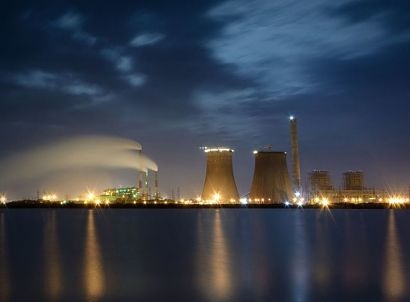
Solar PV and wind in particularly, along with implementing changes in cooling technologies mandated for thermal power plants, would also lower the intensity of India’s carbon emissions, as well as reducing the country’s rate of water withdrawal and consumption intensity of power generation.
The brief, Water Use in India’s Power Generation - Impact of Renewables and Improved Cooling Technologies to 2030, finds that depending on the future energy pathways a power sector (excluding hydroelectricity) transformation driven by solar PV and wind, coupled with improved cooling technologies in thermal and other renewable power plants, could yield as much as an 84 percent decrease in water withdrawal intensity by 2030, lower annual water consumption intensity by 25 percent and reduce carbon emissions intensity by 43 percent, compared to 2014 levels.
The policy brief builds on the findings of another report, Parched Power: Water Demands, Risks, and Opportunities for India’s Power Sector, also launched today by WRI.
“India has emerged as a global leader in renewable energy achieving record-level growth in deployment, rapid cost reductions and many socio-economic benefits of the energy transformation” said Dr Henning Wuester, IRENA Director of the Knowledge, Policy and Finance Centre (KPFC). “Scaling up the use of renewables, especially solar PV and wind, will yield further benefits, in particular long-term reductions in the dependency of the power sector on freshwater.”
More than four-fifths of India’s electricity is generated from coal, gas and nuclear power plants which rely significantly on freshwater for cooling purposes. Moreover, the power sector’s share in national water consumption is projected to grow from 1.4 percent to 9 percent between 2025 and 2050, placing further stress on water resources. Renewable energy, with the added potential to reduce both water demand and carbon emissions, must hence be at the core of India’s energy future.
Dr O.P. Agarwal, CEO, WRI India, added that India’s move towards renewable energy is essential, especially given the water stress that is putting pressure on India’s thermal power plants. Water risks to these plants cannot be ignored when considering the cost of thermal energy, therefore renewables, especially solar PV and wind present a win-win solution for both water resources and the climate.
The joint brief was launched at the World Future Energy Summit 2018 in Abu Dhabi.
Image: Tuticorin thermal power plant near the port of Thoothukudi in Tamil Nadu, India, on the sea shore of Bay of Bengal.
For additional information:

